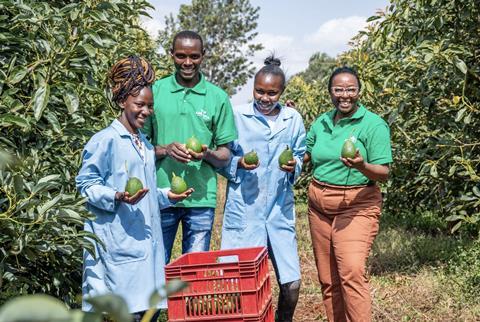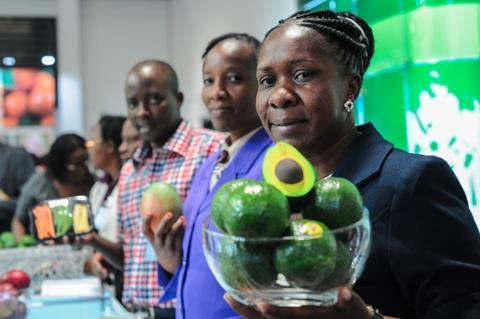As Kenya rises in the global avocado ranks, exporters like Karakuta and Keitt are investing in infrastructure, orchards and market diversification to stay ahead of the competition

As Kenya’s stature in the global avocado market grows – the country now ranks among the top ten producers worldwide – the country’s exporters are investing in production and infrastructure to stay competitive.
Karakuta’s new state-of-the-art packhouse is “more than a facility,” according to CEO Grace Ngungi. “It’s a key part of the value we deliver,” she says. “We have more control of traceability, giving our clients confidence in food safety and supply chain integrity.”
In Kenya, where third-party packhouses serve both as service providers and direct exporters, delays and prioritisation conflicts can be common, Ngungi notes. “By owning a packhouse, Karakuta regains control over timelines, allowing us to align container dispatch with market pricing, vessel schedules and clients’ shelf-life expectations.”
From the outset, Karakuta pursued a long-term vision with bold investments. “In 2017, we decided to invest in the future of horticulture by establishing orchards in Kenya, Tanzania and Burundi,” recalls Ngungi. “We saw this as a foundation for long-term commitment – not just as exporters but as growers with deep regional roots.”
For Kenya’s largest avocado exporter, Keitt Exporters, strategic investment is key, focusing on infrastructure, farmer partnerships and global markets, according to sales manager Anne Kavai. “Keitt’s growth is driven by scale and strategy,” she says.” We have our own orchards and are expanding by 300ha over the next three years. We grow both Hass and Fuerte varieties with a particular focus on increasing Fuerte volumes due to rising demand.”

However, challenges persist – particularly in logistics. “High transit times affect arrival quality due to reduced shelf-life,” says Kavai. “Freight costs have also risen sharply, squeezing margins. These inefficiencies have reduced order volumes, especially from Europe, where delays have forced retailers to scale back. We’re actively exploring markets with shorter transit times and lower risk to maintain fruit integrity and unlock new opportunities.”
“These logistical issues mean Karakuta cannot fully optimise the short and most profitable export window from February to April,” adds Ngungi. To mitigate such challenges, Karakuta has diversified exports to destinations with shorter shipping times. In 2025, its exports to Asia and the UAE grew by 30 per cent.
Such innovations are crucial as competition intensifies. In the long term, Karakuta’s packhouse is set to expand beyond grading and packing into higher-margin activities like cold-pressing for avocado oil and IQF processing for frozen formats – diversifying revenue and reducing risk from seasonal price swings. “Global supply curves shift rapidly, especially when Peru or Colombia enter the market, driving prices down,” says Ngungi. “Our packhouse enables us to plan supply windows for optimal pricing.”
Karakuta is also eyeing increased production in Kenya’s highland regions such as Kisii and the Aberdares to leverage the country’s second, shorter avocado season around October. The company also supports deeper regional sourcing under the African Continental Free Trade Agreement (AfCFTA).



